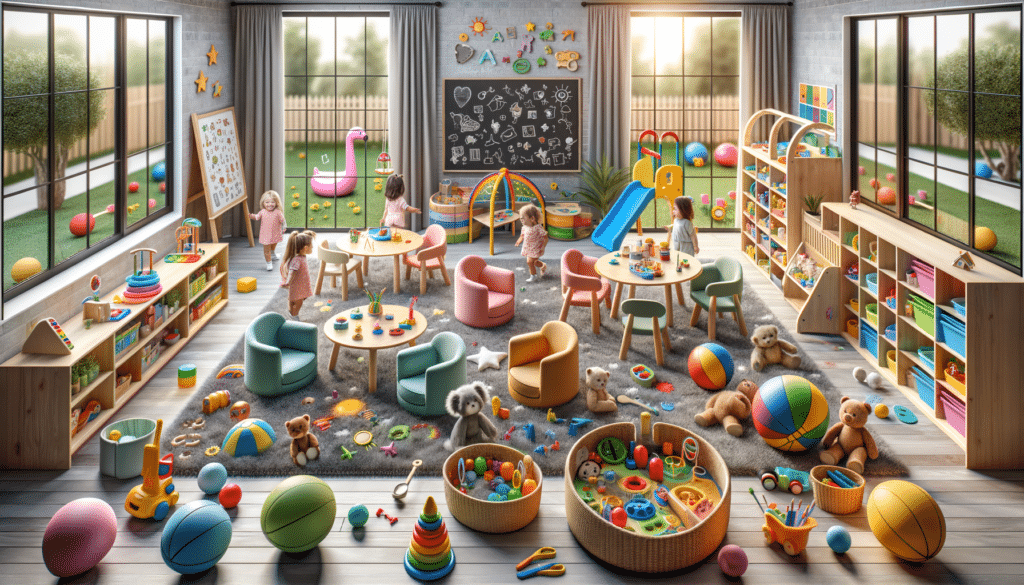Understanding the Importance of Daycare for Toddlers
Daycare centers have become an essential part of modern family life, providing care and early education for toddlers. These facilities offer a structured environment where young children can learn, play, and develop social skills. The significance of daycare extends beyond simply providing a safe space for children while parents are at work. It is about laying the groundwork for lifelong learning and development.
Daycare programs are designed to support the cognitive, emotional, and physical development of toddlers. They offer a range of activities that encourage exploration and creativity, helping children develop critical thinking skills. Moreover, daycare centers provide opportunities for social interaction, allowing toddlers to learn how to communicate and collaborate with peers. This social aspect is vital for developing empathy and understanding different perspectives.
Research has shown that children who attend quality daycare programs often perform better academically in later years. They tend to have stronger language skills, better memory, and improved problem-solving abilities. These programs also help children adjust to school settings more easily, as they are already accustomed to structured routines and group dynamics.
Key benefits of daycare for toddlers include:
- Structured Learning Environment: Daycare centers offer a curriculum that supports early learning through play-based activities.
- Social Development: Interaction with peers helps toddlers develop communication skills and emotional intelligence.
- Routine and Stability: Consistent schedules provide a sense of security, aiding emotional and behavioral development.
In conclusion, daycare centers play a pivotal role in the early stages of childhood development. They offer a nurturing environment that supports learning and growth, preparing toddlers for the next steps in their educational journey.
The Role of Preschool Programs in Early Childhood Education
Preschool programs are designed to prepare children for the academic demands of kindergarten and beyond. These programs focus on developing foundational skills in literacy, numeracy, and social interaction. By providing a structured educational setting, preschools help children transition smoothly into formal schooling.
Preschool curriculums are carefully crafted to engage young minds. They incorporate activities that promote language development, such as storytelling, singing, and interactive reading sessions. Mathematics is introduced through play, using games and hands-on activities to teach basic concepts like counting and pattern recognition.
One of the primary goals of preschool programs is to foster a love for learning. By creating an enjoyable and stimulating environment, educators encourage children to explore new ideas and express their creativity. This positive attitude towards education can have long-lasting effects, influencing a child’s academic success throughout their schooling years.
Preschool programs also emphasize the development of social skills. Children learn to share, cooperate, and resolve conflicts in a supportive setting. These experiences are crucial for building confidence and self-esteem, which are essential for academic and personal growth.
Key elements of preschool programs include:
- Comprehensive Curriculum: Focus on literacy, numeracy, and social skills.
- Interactive Learning: Activities that promote exploration and creativity.
- Socialization Opportunities: Emphasis on teamwork, communication, and empathy.
In summary, preschool programs play a vital role in early childhood education. They provide a foundation for academic learning and personal development, setting children on a path to success.
Comparing Daycare and Preschool: What’s Best for Your Child?
Choosing between daycare and preschool can be a challenging decision for parents. Both options offer valuable benefits, but they cater to different needs and stages of development. Understanding the differences between the two can help parents make an informed choice that aligns with their child’s needs and family circumstances.
Daycare centers are typically designed to accommodate working parents, offering flexible hours and care for children from infancy through preschool age. They focus on providing a safe and nurturing environment where children can learn through play. Daycare programs often emphasize socialization and basic learning activities, preparing children for preschool.
Preschool programs, on the other hand, are more structured and educationally focused. They are generally intended for children aged three to five years and operate on a school-year schedule. Preschools aim to prepare children for kindergarten by introducing more formal learning experiences. The curriculum is designed to develop early literacy and numeracy skills, along with social and emotional competencies.
When deciding between daycare and preschool, consider the following factors:
- Child’s Age: Daycare is suitable for younger children, while preschool is tailored for those closer to kindergarten age.
- Educational Goals: Preschools offer a more structured educational environment, focusing on academic readiness.
- Family Needs: Daycare provides extended hours and flexibility for working parents.
Ultimately, the choice between daycare and preschool depends on what best suits the child and the family’s needs. Some parents opt for a combination of both, starting with daycare and transitioning to preschool as their child grows. By understanding the unique offerings of each option, parents can make a decision that supports their child’s development and prepares them for future educational success.




